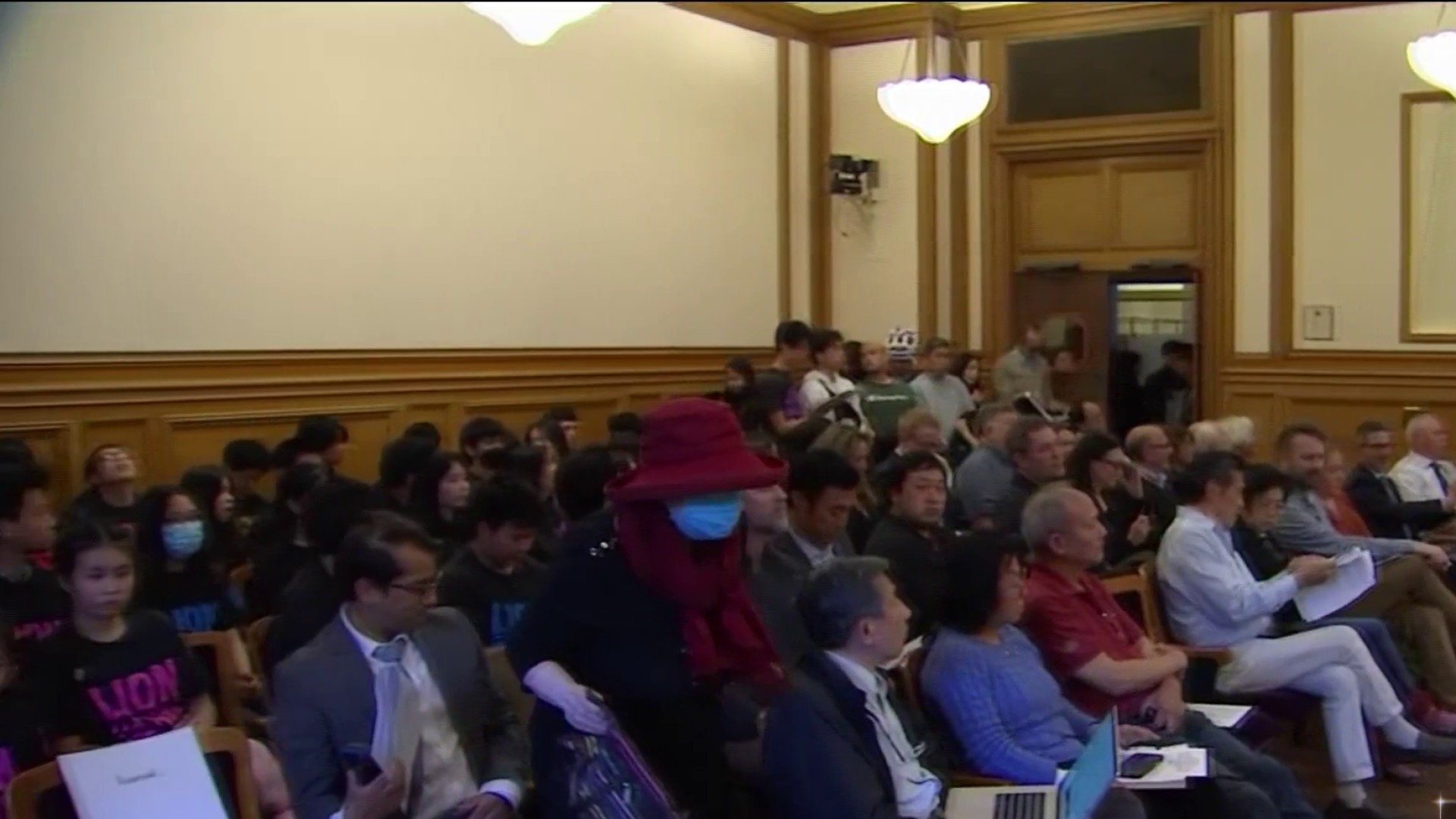For the first time a US military veteran who had been deported for criminal acts after leaving the service returned, legally, to the United States.
After 15 years living in Tijuana, Mexico, since being deported honorably discharged from the US Marines, 45-year-old Marco Chavez returned to the US Thursday morning.
The landmark moment follows an NBC Bay Area investigation last February that showed hundreds of similar honorably discharged US Veterans have been deported over the last two decades after they commit various crimes after leaving the service.
NBC Bay Area’s Investigative Unit traveled to Mexico where the team documented at least 301 honorably discharged military veterans now deported under a policy put in place during Bill Clinton’s administration and allowed to remain during subsequent presidencies.
The policy allows immigration officials to deport non-citizens after they are convicted and serve time for any felony classified as “aggravated.” While that classification includes serious crimes such a murder and aggravated assault, NBC Bay Area’s investigation discovered that under US Immigration policy the term “aggravated felony” also includes what otherwise might be considered less serious crimes such as drug possession, failure to show up in court, entering the country illegally and animal cruelty.
The policy applies to any non-citizen, even if they are in the US legally with a green card or were brought here as babies or as toddlers by their families.
NBC Bay Area’s investigation found 70,000 non-citizens enlisted in the United States military between 2009 and 2016. At least half of them never applied for citizenship, according to the center for naval analyses, leaving them vulnerable to deportation under the policy.
Local
After NBC Bay Area’s story first aired, California Governor Jerry Brown granted clemency to three of those one-time California veterans, including Chavez.
The governor’s clemency paved the way Chavez to return to the US legally on Thursday, just a few days before Christmas.
With supporters standing at the US-Mexican border holding signs of welcome Chavez walked back across the border at the San Ysidro Transit Center south of San Diego around 9:30 a.m. barely recognized by the throng of well-wishers gathered to await his return.
“I’m excited. I was in disbelief but I believe now,” Chavez told the supporters. “I’ll get to know my sons. I’ll be with my family. I’ll be able to wake up Christmas morning and tell them that I’m home.”
Chavez told NBC Bay Area that his parents brought him to the US from Mexico when he was a year old. He grew up in Southgate, California and attended San Gabriel Elementary and Southgate High School.
In 1991, when he turned 19, Chavez enlisted in the US Marines after graduating from high school.
He served in supply administration based at Camp Pendleton.
After four years of service, Chavez was honorably discharged.
Only then did he get into trouble with the law, charged with animal cruelty in Long Beach where a jury convicted him after a trial.
He served 10 months in prison and 13 months on parole on that conviction.
Under a Bill Clinton-era policy, Chavez was then deported in 2002 because he had committed what was considered under immigration rules an aggravated felony and had never legally become a US citizen.
In the 15 years since he’s been gone from the US, Chavez missed his three sons growing up. He told NBC Bay Area that after his deportation he said his family moved with him to Mexico. But his wife spoke no Spanish and commuted back to across the US border to work. Eventually she and their three sons left him in Mexico, moving to Iowa and he and his wife divorced.
In early 2017, NBC Bay Area traveled to Tijuana and talked with dozens of other honorably discharged veterans who, like Chavez, were deported under the same US policy.
Each veteran said they had not been told about, nor given the opportunity to become citizens while they served in the US military.
Some of the deported veterans had even served and fought for the US in war.
NBC Bay Area’s Investigative Unit documented more than 300 of these veterans living overseas.
Advocates of these veterans estimate there may be thousand or more.
Along with blaming Congress for not changing the policy, the advocates also blame the US Department of Defense for not educating service members about the opportunity and legal need to become citizens while they are in the military.
Former California Assemblyman Nathan Fletcher is also a retired US Marine. He told NBC Bay Area’s Investigative Unit he could not believe this has happened for decades when he first was informed about the issue.
“Anyone willing to die for their country should have a country willing to give them citizenship,” Fletcher said. “And it's what they were promised when they joined (the military.)”
After NBC Bay Area’s stories first aired, Gov. Brown granted clemency to three of the deported veterans including Chavez, which paved the way for the Christmas-time reunion back on US soil.
“We’re here today because a group of poeple said if you were willing to die for your country that country would not leave you behind. That country would not let you be deported,” Nathan Fletcher told the assembled crowd. “We’re here today because we believe that those who took an oath and were willing to give their life for our country with the promise of citizenship deserve to have that promise fulfilled.”
“And so 15 years after being deported a man who came to this country as a child, who loved this country, who committed to this country, a man who served honorably in the United States Marine Corps, is finally home.”
Fletcher, the ACLU and other advocates are calling on the US Congress to change the law and allow these deported veterans to return.
While there is a bill under consideration on Capitol Hill, so far, it appears neither congress nor the administration are inclined to move that bill forward and no presidential administration from Clinton forward has saw fit to even attempt to change the policy.
Even in his excitement at his return, Chavez remembered all the hundreds of other veterans still having to live overseas because of this policy. He hopes his case will serve as a template for others.
“It’s good to use as an example so they can open the door for other veterans to come back,” Chavez said.



